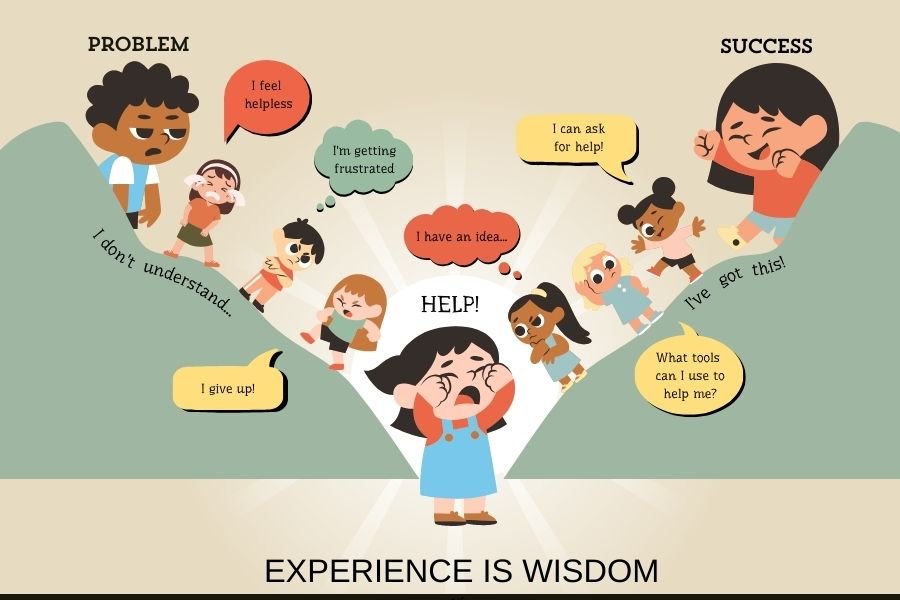Article by: Anshu Yadav
Research conducted by Celal Bayar University found that “the development of socialization skills and integration of character education is an important part of a child’s academic success. Character education efforts may be effective when implemented rigorously and with a scientific foundation. Schools should focus on teaching character within the regular curriculum.”
Character education at the heart of Mindful Souls is a worldwide movement aimed at fostering ethical, responsible, and caring young people via the modeling and teaching of positive character traits based on universal values we all share. It is a deliberate, proactive endeavor by schools, districts, and states to instill key basic ethical principles in their children, such as caring, honesty, fairness, responsibility, and respect for oneself and others.
Social and Moral Responsibilities
How can we instill a sense of self-determination and civic engagement in our children? Character education will teach our children that life is about more than simply living and accumulating financial prosperity; it is also about giving back to society and making a good contribution. For example, teaching children about ecological values by making plantable cards out of waste papers with seeds embedded in them is a fun way to get them involved. The government and many NGOs have initiated programs to assist various social causes, such as raising awareness about the significance of education, helping homeless people, caring for the sick, and spending time with the elderly.
Character education enables the school to develop a set of universal values that can be understood by all students. It is necessary for people and communities to thrive; it allows children to make the best decisions at the appropriate time for the best reasons. It produces a well-rounder decent human being.
Respect for culture and traditions
Since the period of Gurukul education in India, character development has been ingrained in Indian education. Spending the first quarter of one’s life as a student striving for education and knowledge is the cornerstone of Indian philosophy and culture. The Gurukuls were intended to be places where people could acquire not only academics but also vital life skills like communal living and caring for others.
Research done by Banasthali Vidyapith, Rajasthan concluded that there are five facilitating factors for making management education more meaningful and sustainable: Aparigraha (minimalism), Swawlamban (self-reliance), Udyam (entrepreneurial initiatives), Uttardayitava (responsibility), and Chetna (consciousness).
Gurukul students lived a life of a disciple, learning what their guru taught them with love as well as a lot of hard work. Every student in the Gurukul was treated equally, regardless of caste or economic status. Students are expected to leave their homes and loved ones and come to the Gurukul Ashram to study life lessons from the guru for several years.
Making ethical decisions
Ethical decision-making skills can and should be implemented without the need for a separate program or additional assignments; instead, the way a topic is taught can be changed to fit ethical limits; for example, take a traditionally tried topic and add questions about morals or ethical discussion, and the topic becomes much more interesting to students. We’ll observe that children are more involved than they have been in weeks, debating important issues like values, character, and right vs. wrong. Students want this kind of ethical growth because it allows them to hone their ethical decision-making abilities and deal with problems for which they are unprepared.
Need for Leaders
Research conducted by Canterbury Christ Church University found that “while teachers are strongly in favor of strengthening their abilities in the area of moral development, their opportunities to do so are uneven and dependent on their course and teaching placement school. Whilst character education is seen as part of citizenship education in the school curriculum in England, the data indicates that it is not part of the formal curriculum of teacher education.”
It is incumbent upon us as adults to demonstrate curiosity, resourcefulness, and innovation in order to encourage young people to engage in a continuous process of moral action and contemplation. A teacher may tap and nourish a kid’s capacity for goodness, and when they do, it enriches their own life. Most teachers entered the field not merely to teach math and reading skills, but also to make a difference in the sort of human being a child would become. When leaders deliberately, persistently, and systematically participate in character education, they are truly accomplishing their deepest aims as educators.
We at Mindful Souls have a dedicated team of certified teachers and psychologists who focus on emotional wellbeing, strong moral character, wisdom, and a meaningful career at the later stage of the child. They monitor the progress of the child and maps the journey throughout his life.
It is self-evident that character strengths are the bedrock of emotional well-being and long-term happiness. If you agree with this and want to learn more, sign up for The Good Life Program demo session.
 References
References
Joshi, A., & Sharma, A. (2021). Sustainable management education: insights from indigenous wisdom of Bhartiya (Indian) Gurukul philosophy. World Review of Entrepreneurship, Management, and Sustainable Development, 17(4), 471. https://doi.org/10.1504/wremsd.2021.10039714
Pala, A. (2011). The need for character education. International Journal of Social Sciences and Humanity Studies, 3(2), 23-32. https://dergipark.org.tr/en/download/article-file/257330
Revell, L., & Arthur, J. (2007). Character education in schools and the education of teachers. Journal of Moral Education, 36(1), 79-92. https://www.researchgate.net/publication/238397739_Character_education_in_schools_and_the_education_of_teachers














